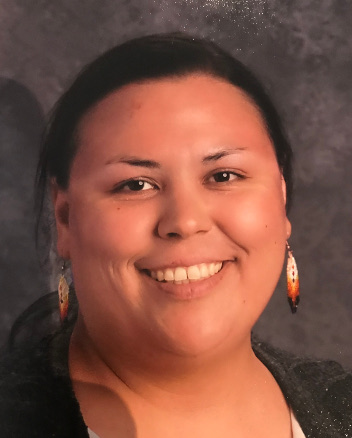News
Ms. Madiratta: Indigenous Teachers are Positive Role Models
Jan 5, 2018
Posted in: SUNTEP
By James Oloo
At Gabriel Dumont Institute, we are always very proud of our graduates. This month we caught up with Jessica Madiratta, a Saskatchewan Urban Native Teacher Education Program (SUNTEP) grad and current Grade 3 teacher at Regina Public School Division. She graduated from SUNTEP-Regina in 2010 as Jessica Wesaquate. “My maiden name, Wesaquate, connects me to my home community of Piapot First Nation located about 25 minutes outside of Regina.” Wesaquate means “sharp like a whistle; it represents intelligence.” The daughter of Lorna Wesaquate and George Bladyko, Jessica is part Polish from her father’s side. She grew up in Regina, Saskatchewan.
Jessica heard about SUNTEP when she was in high school. As she reminisces, “It was Marilyn Totten, an amazing guidance counsellor at Robert Usher Collegiate, who told me about SUNTEP.” Jessica noted that, until then, she did not know anybody who had gone through SUNTEP and was “very excited about the possibility to attend a program that specialized in Indigenous Education versus the mainstream university programs.”
Jessica proudly noted that her mother and Auntie Leona both have university degrees and that this may have influenced her own decision to pursue a university degree. She describes her mother as one of her “role models and biggest supporters.” Jessica was the first in her generation to graduate with a university degree, and the first to have attended SUNTEP. Since then, her brother has gotten a university degree in Human Justice from the University of Regina.
When asked why she chose the teaching profession, Jessica pointed out that “It might sound cliché, but I wanted to be a teacher since I was a little girl. I remember playing ‘school’ with my brothers and the neighborhood kids.” She continued, “In high school, the majority of my friends were Indigenous. Out of all of my Indigenous friends only one of them graduated with me.” It bothered Jessica that too many Indigenous students were not completing high school. “As a teenager, I recognized that there was something wrong with that picture. I faced a lot of racism growing up. I never really learned anything about my culture in school and when I did it was very stereotypical.” From her teenage years, Jessica had decided that she would what she can to change things for the better. “I wanted children, both Indigenous and non-Indigenous to know about the people who have been here since time immemorial. I only had one Indigenous teacher in my kindergarten through grade 12 education. I wanted to become a teacher so children could see there are Indigenous educators too.”
We asked Jessica about her personal philosophy of teaching. “My teaching philosophy is based on relationships,” she said. “It is crucial you build strong relationships with your students based on mutual respect and trust and ensure that this sets the tone for a classroom community.” She asserted that “Students feel safe when they have a relationship with their teacher. I believe in having high expectations for students. In my classroom we have regular talking circles so I am in touch with how students are feeling and if they have had a good sleep.” Jessica continued, “I believe in a holistic education where students’ needs are met in the four quadrants of the Medicine Wheel. I regularly include Indigenous perspectives into my lesson planning.”
Amidst media reports such as ‘Stress contagion’: How teacher burnout can affect your children (http://ctv.news/kEV5J6Z) and Overwhelmed Canadian Teachers May Be Quitting in Droves (https://www.theepochtimes.com/overwhelmed-canadian-teachers-quitting-in-droves_1477305.html), we asked Jessica about her experience as a teacher. Her response was reassuring: “My experiences as a teacher still match up with the reasons I wanted to become a teacher. I feel blessed to be an Indigenous woman in a teaching position. I work at a school with a high population of Indigenous students and I strive to be a positive role model for them each day.” Jessica pointed out that “There still exists a lot of racism in Regina and when I teach my students I do so with a social justice lens. I want our Indigenous children to see how beautiful our cultures and Nations are and to have a strong sense of identity.”

